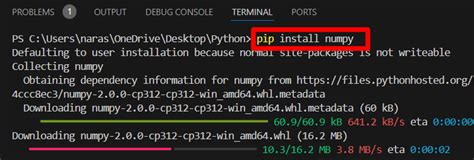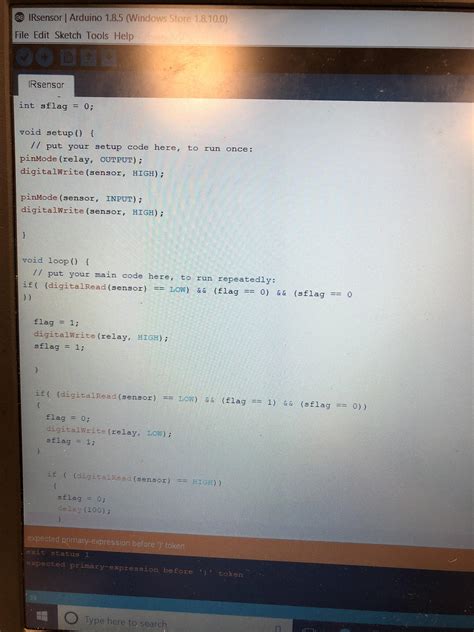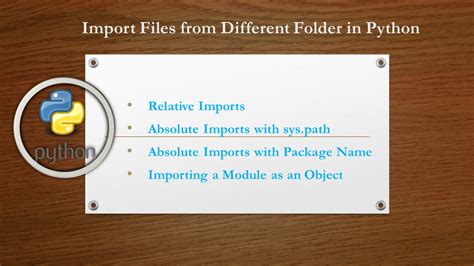When working with Python, it's not uncommon to encounter issues with imports not updating as expected. This can be particularly frustrating when you're trying to debug or implement new functionality. In this article, we'll delve into the reasons behind this issue and explore practical solutions to ensure your Python imports are always up to date.
Understanding the Issue

The problem of Python imports not updating typically stems from how Python handles module caching. When you import a module for the first time, Python caches it in memory. This caching mechanism is designed to improve performance by avoiding the need to reload modules every time they’re imported. However, this can lead to issues when you’re actively developing and changing your code.
Module Caching
Python’s module caching is managed through the sys.modules dictionary. When a module is imported, Python checks this dictionary first. If the module is found, Python uses the cached version instead of reloading it from the file system. While this is efficient, it means changes made to the module file after it’s been imported won’t be reflected in the current Python session.
| Module State | Description |
|---|---|
| Loaded | Module is loaded into memory and available for import. |
| Cached | Module is stored in `sys.modules` for quick access. |
| Updated | Changes made to the module file after initial import. |

Solutions to Update Python Imports

There are several approaches to ensure your Python imports are updated. Each method has its use cases and can be applied depending on your specific needs and development environment.
1. Manual Reload
For interactive development, such as working in a Jupyter Notebook or a Python shell, you can use the reload() function from the importlib module to manually reload a module.
import importlib
import mymodule
# After making changes to mymodule
importlib.reload(mymodule)
2. Removing from sys.modules
Another approach is to remove the module from sys.modules before importing it again. This is particularly useful in scripts where you need to ensure the latest version of a module is used.
import sys
import mymodule
# After making changes to mymodule
if 'mymodule' in sys.modules:
del sys.modules['mymodule']
import mymodule
3. Using autoreload in Jupyter
For Jupyter Notebook users, the autoreload extension can automatically reload modules when changes are detected. This extension can be particularly useful for interactive development.
%load_ext autoreload
%autoreload 2
Key Points
- Python caches imported modules in memory for performance.
- Changes to modules after import won't be reflected in the current session.
- Use `importlib.reload()` or remove modules from `sys.modules` to force reload.
- Jupyter users can leverage the `autoreload` extension for automatic module reloading.
- Understanding module caching is key to managing import updates effectively.
Best Practices for Managing Imports
While the above solutions can help update imports, it’s also important to follow best practices to minimize the need for manual intervention.
1. Separate Development and Production Environments
Maintaining separate environments for development and production can help avoid version conflicts and ensure that changes are properly tested before deployment.
2. Utilize Version Control
Version control systems like Git can help manage changes to your codebase, including modules. This allows for easy tracking and rolling back of changes if necessary.
3. Automated Testing
Implementing automated tests can help catch issues related to module updates or changes, ensuring that your application remains stable and functional.
How does Python's module caching affect import updates?
+Python's module caching means that once a module is imported, subsequent imports will use the cached version unless manually reloaded or removed from `sys.modules`.
What is the purpose of the `autoreload` extension in Jupyter Notebook?
+The `autoreload` extension automatically reloads modules when changes are detected, facilitating interactive development and debugging.
How can I ensure my Python imports are updated in a script?
+Removing the module from `sys.modules` before importing it again or using `importlib.reload()` can ensure that the latest version of a module is used in a script.
In conclusion, managing Python imports effectively is crucial for efficient development and debugging. By understanding how Python’s module caching works and applying the strategies outlined above, you can ensure that your imports are always up to date, reflecting the latest changes to your modules.
